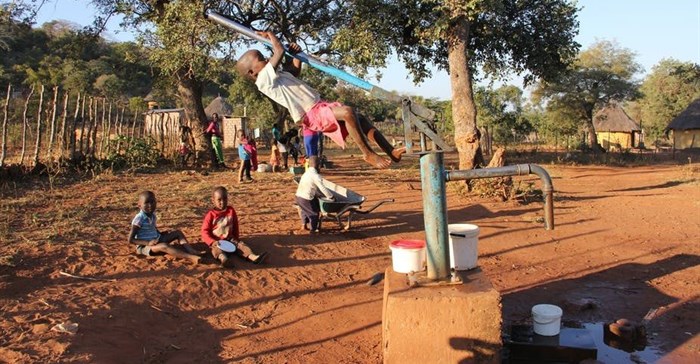
Top stories






More news

Marketing & Media
Ads are coming to AI. Does that really have to be such a bad thing?















Residents of the wealthy suburbs of Cape Town have been asked to reduce their consumption to less than 50 litres per person per day, one sixth of the daily consumption of the average American. But elsewhere in village after village in sub-Saharan Africa women walk miles to scoop water from polluted ground wells for their average daily ration of less than 20 litres a day.
We have been studying this kind of crisis in South Africa for the last two decades. Our most recent work examined water quality, reliability and accessibility in rural communities living along the western edge of one of the world’s largest game reserves, South Africa’s Kruger National Park.
Our data, over the last seven years, reveal a very complex and desperate situation. We set out to understand more than basic water quality problems and integrated social and environmental factors into our research. To do this, we used a variety of methods to collect information about people’s experiences in the different locations they collected, stored and used water.
This approach provides a clear picture of the solutions needed to support people’s quality of life. In some instances, where government’s audit on water services found successful water service provisioning, our data found the complete opposite.
South Africa’s post-apartheid National Water Act is one of the most advanced examples of legislation globally. It asserts that both people and the environment have constitutional rights to water. But achieving this has yet to be realised.
HaMakuya, a group of 21 villages nestled in the north eastern corner of South Africa, face set of common challenges. These communities remain marginalised. Their situation hasn’t improved since the end of apartheid.
National government surveys claim that these areas are fully provided for when it comes to water. This isn’t true. Communities are plagued by drying boreholes, broken and poorly maintained infrastructure, degraded water resources, increasing droughts, urbanisation pressures and nonfunctional local government structures.
After working with the HaMakuya community for 20 years, we have seen clear evidence of a long-term water crisis that’s getting worse over time. People go without a stable and potable water source for months. Sometimes they don’t even have enough water to cook staple foods like maize meal.
It was not surprising, therefore, when community leaders asked us eight years ago to help them understand and resolve their water resource challenges. The request prompted us to try a different approach to studying the water crisis in the region. We started working with local people, including them as active participants. We also trained young people as environmental monitors to collect long-term water quality data.
We found that every village had a different story. For example there were high concentrations of nitrates in water in one community which posed a health hazard. Another had water that was highly saline in taste. Even villages dependent on the same water source sometimes had different challenges: while one had quality water, others suffered from E. Coli contamination.
This complexity poses a problem for implementing large-scale, regional solutions. But it also provides an opportunity to introduce local, positive changes that have an immediate impact.
What makes the need for local-level solutions even more urgent is that present problems have the maximum impact on the most vulnerable populations. For example, when water is available most of the schools in this region have water that is contaminated with E. coli.
But as local solutions are developed, there also need to be ways of providing feedback, and tracking potential unintended consequences. Many technological solutions have failed because specific cultural, social, and environmental factors were overlooked in trying a quick fix.
Across the world a range of studies on water technologies, planning, and resource challenges show that local, place-based solutions must be invested in. Our work in HaMakuya supports this increasingly important call for a different approach to water management.
And solutions don’t have to involve huge money investments. At the right scale, and with careful consideration of the cultural, social, environmental, and technological landscape, they can lead to sustainable and resilient communities – a hopeful future for people who have been consistently under-resourced and ill-treated.
Grand visions of a Utopian state in which each citizen has equal access to environmental resources are all very well, and laudable. But unless there is investment in the more modest, local complexities of maintenance, training, and village distribution, poor people will continue to suffer at the expense of the wealthier and more distant cities.
![]() The Cape Town crisis has all the hallmarks of crises soon to be faced by large cities like Mexico City, Melbourne, Denver, and Jakarta. We believe that the true political and environmental character of the immediate global emergency is better read in the dust, the creak of ancient pistons, and the meagre, saline seepage from failing wells that have come to define daily life in rural South Africa.
The Cape Town crisis has all the hallmarks of crises soon to be faced by large cities like Mexico City, Melbourne, Denver, and Jakarta. We believe that the true political and environmental character of the immediate global emergency is better read in the dust, the creak of ancient pistons, and the meagre, saline seepage from failing wells that have come to define daily life in rural South Africa.

The Conversation Africa is an independent source of news and views from the academic and research community. Its aim is to promote better understanding of current affairs and complex issues, and allow for a better quality of public discourse and conversation.
Go to: https://theconversation.com/africa